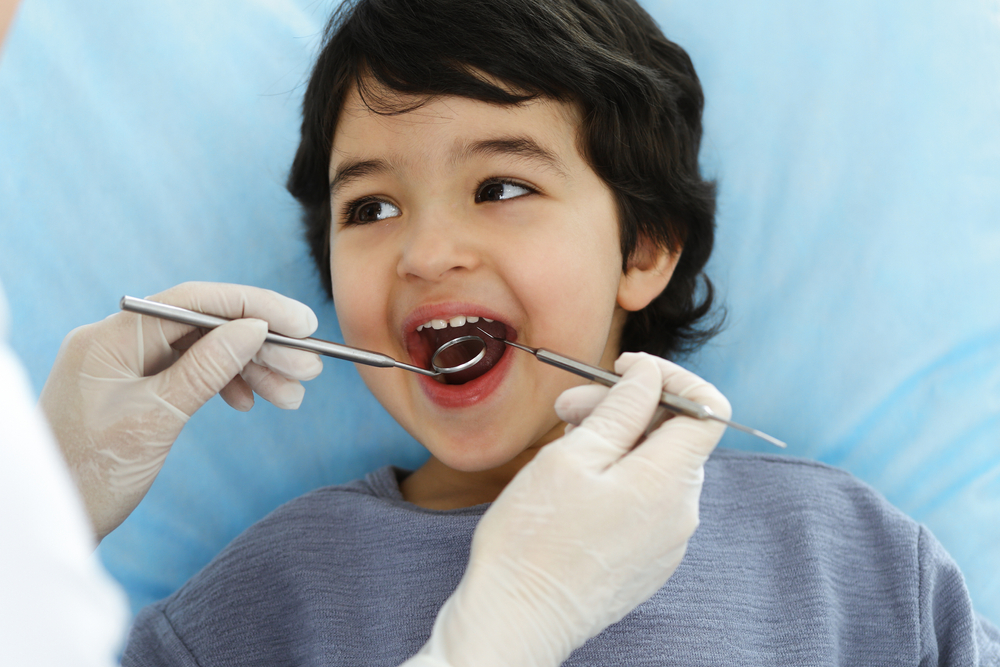It might seem like your child’s smile is constantly changing as they get teeth, lose teeth and then get more teeth. That’s because it is. Unlike adults, kids’ teeth, gums, jaw and facial structures are still developing, which means they have unique oral health needs. Because of this, a pediatric dentist is the best choice for children. As specialists, pediatric dentists like Dr. Roya Pilcher receive extensive training in treating children from infancy through the teenage years, including those with special health care needs.
What is a Pediatric Dentist?
Pediatric dentistry is one of the dental specialities recognized by the National Commission on Recognition of Dental Specialties and Certifying Boards (phew, that’s a mouthful). The organization defines pediatric dentistry as, “an age-defined specialty that provides both primary and comprehensive preventive and therapeutic oral health care for infants and children through adolescence, including those with special health care needs.”
To become a specialist, after completing dental school, a pediatric dentist must attend a rigorous two-year residency program where they receive an extensive education and clinical experience in all aspects of kids’ dentistry. During their residency, they also learn about:
- child psychology and development
- behavior management
- oral pathology
- radiology
- conscious sedation and general anesthesia
- management of oral and facial trauma
- pharmacology
- and more
Our DC pediatric dentist, Dr. Roya, only sees kids and that’s the sole focus of her practice, as it is with any pediatric dental specialist. While your own general dentist might be kid-friendly, they didn’t receive speciality training in caring for children. It would be like taking your child to your general practitioner instead of a pediatrician. In fact, pediatric dentists are considered the pediatricians of the dental world.
How Long Does it Take to Become a Pediatric Dentist?
So, what kind of training do pediatric dentists have? They have to:
- Receive a bachelor’s degree from a college or university
- Complete four years of dental school and earn their doctorate degree
- Attend two additional years of specialty training in an accredited pediatric dental residency program
How long does it take to become a pediatric dentist? On average, after graduating from high school, it takes 10 years to become a pediatric dentist. Yup, that’s how much Dr. Roya loves working with kids and helping them get healthy smiles!
What Types of Treatments Do Pediatric Dentists Offer?
As a Washington, DC pediatric dentist, Dr. Roya offers comprehensive oral health care, including:
- Dental exams for infants, children and teenagers
- Preventative dentistry, such as dental cleanings, fluoride treatments, dental sealants, as well as oral hygiene and diet counseling
- Guidance on oral habits (i.e., thumb sucking, tongue thrust, pacifier use, etc.)
- Evaluation of dental and facial development to determine if kids should see an orthodontist
- Appliances, such as dental space maintainers and habit-breaking appliances
- Repair of cavities and other tooth defects
- Pulp therapy
- Restorations (i.e., tooth-colored fillings and pediatric dental crowns)
- Soft tissue treatments, including managing and treating pediatric gum disease, oral ulcers, tongue-tie, mucoceles, etc.
- Care for dental injuries and emergencies
- Diagnosis of a range of oral conditions
- Pediatric dental sedation
What are the Benefits of Seeing a Pediatric Dentist?

A pediatric dentist is the best dentist for kids, because their focus is on growing patients. The benefits of seeing a pediatric dentist include:
- Expertise – It’s during their speciality training that pediatric dentists receive an advanced education in dentistry for infants, children and teens. They have an in-depth understanding of children’s teeth, gums and mouth at every stage of development and are able to help patients prevent oral health issues. Because they’re experts in diagnosing and evaluating concerns and have an increased awareness of issues that affect kids, they’re also able to catch small problems before they become big ones.
- Stress-Free Visits and Happier Patients – Pediatric dentists learn about child psychology and development, which is important considering kids aren’t always able to sit still and cooperate at dental visits. These dental specialists know how to communicate with kids using terms they can understand, and they have a range of behavior management techniques at their disposal to put children at ease.
In fact, Dr. Roya even developed her own technique called the S.A.F.E. technique (you can read all about it here) that successfully reduces patient anxiety and makes kids an active participant in their appointments. When children feel happy and relaxed during dental visits, it makes future appointments easier, allows us to safely deliver needed care and it makes children more likely to continue with preventative visits through adulthood.
- Trained in Working With Children With Special Health Care Needs – During their residency, pediatric dentists like Dr. Roya also develop expertise in working with children with special health care needs. She’s able to provide safe, compassionate, personalized care to children with a range of physical, cognitive, developmental, emotional and medical conditions. When choosing a dentist for kids with autism and autism spectrum disorders, Down syndrome, visual impairments, trauma, intellectual disabilities, cystic fibrosis, ADHD or any condition that can make going to the dentist challenging, a pediatric dentist is your best bet.
- Kid-Friendly Office – Pediatric dentists are more likely to have kid-friendly offices. At Smile Valley Pediatric Dentistry, our space was designed and decorated with children in mind. Not only is our office bright, fun and full of prizes, it also features child-sized equipment and tools, which makes for a more comfortable experience.
And while kids are our focus, we wanted our practice to be a great fit for the whole family, which is why we also have:
- In-office assistants to help parents with multiple children
- Pre-filled school forms that are ready to go when you need them
- Convenient, flexible scheduling and on-time appointments
- A doctor available 24/7 (as an emergency pediatric dentist in Washington, DC, you can Facetime, text or call anytime!)
- Modern technology and techniques for painless, squirm-free care
- Educational – Another important role that a pediatric dentist plays is that of an educator. Dr. Roya takes the time at visits to teach parents and children how to maintain a healthy smile by covering things like oral hygiene, cavity prevention, a smile-friendly diet and oral habits. Our ultimate goal is to give kids the foundation they need for lifelong oral health.
When Do Kids Start Going to the Pediatric Dentist?
The American Academy of Pediatric Dentistry, as well as numerous other health organizations, recommend kids have their first dental check-up by the age of 1. During these early visits, we build rapport with your child and help them get used to the sights and sounds of the dental office.
Dr. Roya will also examine their teeth (or tooth!) and gums, make sure their development is on track and assess their risk for early childhood caries (cavities). She then works with parents to create a personalized preventative care plan.
How Do I Find a Pediatric Dentist Near Me?
If you’re in Washington, DC or the surrounding areas of Chevy Chase and Bethesda, MD, schedule a visit at Smile Valley Pediatric Dentistry in DC! Our expert pediatric dentist and amazing team can help your child achieve or maintain outstanding oral health in a way that’s fun, engaging and stress-free.
Not located nearby? The American Academy of Pediatric Dentistry can help you find a pediatric dentist here.











